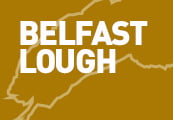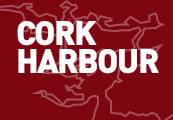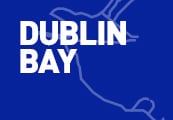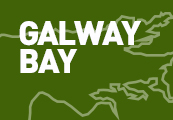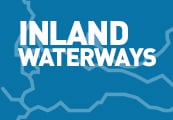Displaying items by tag: Sea Fisheries Protection Authority
Aircraft Chartered for European Fisheries Control Agency Surveillance in Irish Waters
The European Fisheries Control Agency (EFCA) has chartered an aircraft for the first time as part of surveillance of Irish waters.
A European Maritime Safety Agency drone is also being used as part of air-sea fisheries control and inspection.
Representatives of the Sea-Fisheries Protection Authority (SFPA) met EFCA executive director Dr Susan Steele on board the EFCA chartered patrol vessel Lundy Sentinel in Cork harbour yesterday.
At a press briefing, the EFCA outlined how its air and sea assets have recently increased for the Western Waters Joint Deployment Plan.
The EFCA said the mission's objectives include participating in “control and inspection activities and contributing to compliance and the effective implementation of risk treatment measures”.
“This patrol mission in Irish waters also supports the ongoing fishery protection services work undertaken by the SFPA in collaboration with the Naval Service and Air Corps,” it said.
The agency said it would increase up to three of its chartered patrol vessels in the coming months.
“For the first time ever, an EFCA-directed aircraft will also operate in Irish waters in tandem with the patrol ship Lundy Sentinel, transmitting live aerial patrol footage to the EFCA centre in Vigo and the Fisheries Monitoring Centre (FMC) in Haulbowline, Cork,” it said.
“This is a valuable aspect to the patrol where inspectors from different member states work together to deliver harmonised fisheries control, with the support of EFCA liaison on board and the EFCA coordination centre in Vigo,”Dr Steele said.
As Afloat previously reported, the SFPA requested and received the support of the EFCA in patrolling Irish waters on four occasions between January and March in 2021.
This was considered necessary because “the Naval Service could not commit to increasing its patrol days at sea under a joint-EU initiative coordinated at EU level by EFCA”, according to an assessment from the Department of Agriculture, Food and Marine to the Commission on the Defence Forces
SFPA chairman Paschal Hayes said “protecting the long-term viability and health of our marine ecosystems and ensuring long-term sustainability for our fishing industries and communities is an issue of significance not only here in Ireland but across Europe”.
“Our work with the EFCA is a critical element in supporting the overall remit of the SFPA to ensure the sustainability and future viability of Ireland’s sea fisheries and marine resources, an industry that supports over 16,500 jobs in coastal communities across Ireland.”
Sea Fisheries Protection Authority Makes Appointment of Michael Finn and Jonathan Hoare as Authority Members
The Minister for Agriculture Food and the Marine Charlie McConalogue has announced the appointment of Mr Michael Finn and Mr Jonathan Hoare as Executive Members of the Sea Fisheries Protection Authority (SFPA). The appointments follow the recent Public Appointments Service (PAS) competitive recruitment process.
The Executive Members, working with SFPA Executive Chairperson Paschal Hayes, will lead the SFPA over the coming years through an ambitious programme of organisational change to deliver efficient and effective enforcement of sea fisheries and food safety law, promoting compliance while detecting and deterring contraventions.
Michael Finn has most recently worked as an Assistant Commissioner for the Garda Síochana. In this role, he was responsible for policing and security of the Southern Region. His previous responsibilities included being part of the Garda Senior Leadership Team, contributing to the overall organisational strategy, policing plans and the delivery of policing and security outcomes.
Jonathan Hoare has most recently worked as a Programme Manager, coordinating and managing the implementation of the South West Regional Enterprise Plan. He previously held the position of Director of Communications and Public Affairs for the Irish Local Development Network. Mr Hoare has also held various public service roles, including his work with the houses of the Oireachtas and a period as Advisor to a previous Minister for Agriculture, Food and the Marine.
Announcing the appointments, the Minister stated, “I am pleased to appoint both Michael Finn and Jonathan Hoare as the new Executive Authority Members of the SFPA. I am confident that they will meet the challenges posed in leading the SFPA organisation through a period of significant change while achieving the exacting standards of public sector leadership. This complex and evolving regulatory sector promotes a sustainable and compliant industry that supports coastal communities dependent on fishing and helps secure our fish stocks for future generations of fishers.”
Both appointees took up their posts on 03rd October 2022.
Sea Fisheries Protection Authority Urges Restaurants Not to Buy Shellfish from Recreational Fishers
Recreational fishers are urged to comply with regulations on catch, sale and purchase of crabs and lobsters, the Sea Fisheries Protection Authority (SFPA) has said.
The authority said it is also calling on all who purchase fish - and in particular those in the restaurant trade - to ensure that they purchase fish from legitimate sources only.
“They cannot purchase from recreational non-commercial fishers,” the SFPA has pointed out.
“It is important that all who are partaking in recreational fishing adhere to the regulations which are in place to protect the marine ecosystem and safeguard Ireland’s marine resources for future generations,”it said.
“ Whilst certain activities are allowed without a commercial license, there are limits in terms of quantities, and usage of fish. All such fish must comply with the general conservation requirements applicable to both commercial and recreational fishing,” it said.
Under EU and national legislation, recreational or non-commercial fishers who do not have a commercial fishing licence are restricted to doing no more than the following in pot fisheries:
- Fish for lobster and crab with pots from May 1st to September 30th only every year.
- Fish up to six pots (i.e., a maximum of 6 pots associated with their boat either in the water or on board at any time).
- Retain up to five crabs and one lobster daily.
- Eat their catch themselves or share with their immediate family – they cannot sell or offer for sale any catches (a commercial fishing license is needed to sell fish).
- Only land fish above the legal-size limits. In Irish waters the minimum size of brown crab is 140mm; spider crab (130mm for males and 125mm for females) and velvet crab 65mm, while lobsters must be a minimum size of 87mm and maximum size 127mm (carapace length).
- Anyone who catches a crab or lobster outside these size limits, must return it immediately to the sea.
- Never retain a lobster that has been V-notched or has a mutilated tail – they must be released back into the water.
- Never catch crabs or lobster by means of skin-diving, which includes using apparatus of any kind which enables a person to breathe underwater.
“We are privileged to enjoy a plentiful supply of fish stocks such as mackerel, crab, lobster, and others such as clams, mussels and periwinkles around our coastlines,” SFPA executive chair Paschal Hayes said.
“It is critically important that we all work to ensure that we preserve the health of our marine ecosystems and safeguard our marine resources for future generations. Critical to this is following the regulations which prioritise sustainability and are in place to ensure the viability of our sea-fisheries,” he said.
“We are also reminding all recreational fishers, of the allowance applicable under the regulations which facilitates the catch for personal use only and not for resale. Further to this, I would appeal to the public to ensure that they only purchase seafood from legitimate sources which are those that are legally entitled to supply and sell sea-fisheries products on a commercial basis,” he said.
“This is vitally important. Purchasing illegally caught fish means your food comes outside of systems designed to ensure future sustainability and may present a risk to public health and risks damaging the positive reputation regarding the quality and authenticity of Ireland’s seafood,” Mr Hayes added.
“The SFPA urges anyone who suspects illegal fishing or activity that could compromise food safety to contact the regulator directly or by calling the SFPA confidential telephone line at 1800 76 76 76,” he said.
The Sea Fisheries Protection Authority (SFPA) was asked to explain why it couldn’t sort out the fish landings row in Killybegs, Co Donegal, at an Oireachtas committee meeting on Wednesday.
“You’ve really significant powers, you’ve attained oversight of the factories with CCTV at an unprecedented level that doesn’t exist anywhere in Europe, you’re seen as the strongest regulator in Europe and we can’t get some solution to what’s going on in Killybegs that’s acceptable,” Sinn Féin fisheries and marine spokesman Pádraig MacLochlainn said.
“You guys have the highest reputation in Europe as regulators,” MacLochlainn continued.
He was addressing SFPA executive chair Paschal Hayes, along with SFPA colleagues Dr Micheál O’Mahony and Olive Loughnane, at a special hearing on the fish landings row held by the Oireachtas agriculture, food and marine committee.
“You have to do your job...you have to make sure there’s not illegal fishing, you have an array of serious powers,” MacLochlainn said.
“Surely we can sort this out, surely we can get to a point where we allow the industry to survive while you do your job which is an important job,” MacLochlainn said.
Responding, Mr Hayes said he was glad Deputy MacLochlainn recognised the important job the SFPA did, but there were parameters within which the agency had to work as a regulator.
“We are willing to discuss with anybody how we can advance in relation to that, keeping in mind that we have legislation from you as the Irish legislator, we have EU regulations that you insist that we implement and we have to keep those functions and issues in mind when we are arriving at a regulatory regime that will underpin the sustainability, the authenticity, and prevent food fraud - to be quite straight about it - within the Irish fishing seafood sector and food sector generally,” Mr Hayes said.
The SFPA had been asked to appear before the parliamentary committee by Independent TD for Cork South-West Michael Collins and colleagues in the continuing row over handling of pelagic fish landings in Killybegs.
Much of the meeting was dominated by technical questions over the background to the dispute, which arose when industry representatives said that three agreed options for checking weighing of landings were reduced to two without notice last March.
Asked by Sinn Fein TD for Donegal Pearse Doherty to explain why two Killybegs fish factories had permits revoked after they handled fish which was landed in Derry to ensure quality, Mr Hayes said that the SFPA was not comfortable discussing individual cases.
Mr Doherty asked Mr Hayes and colleagues to “convince the committee that this was not vindictive”.
Mr Hayes said that this was about sustainability of fish stocks at the end of the day.
In an opening statement running to 30 minutes, Mr Hayes said that it was “with genuine concern” that the SFPA became aware of a “sustained campaign of disinformation and misinformation suggesting the SFPA was not adhering to provisions of the Northern Ireland protocol following the UK departure from the EU”.
“The SFPA confirms that there has been no change in the fish weighing on landing arrangements between the Republic of Ireland and other jurisdictions as a result of Brexit,” it said.
“Under the EU regulations, which SFPA is bound to implement by this Oireachtas, landings to Northern Ireland could never have been weighed in Killybegs under the terms of an Irish 61(1) control plan,” Mr Hayes said.
“That 61(1) derogation is only applicable to post-transport weighing of fishery products when weighed within the member state of landing,” he said.
“The only way in which fishery products might be weighed in Killybegs following a landing to Northern Ireland, would be through a Common Control Programme between UK and Ireland approved by the EU Commission,” he said.
“ It is important to reiterate, no such Common Control Programme has ever existed, either before or after Brexit. Therefore, landings to Northern Ireland are treated similarly to landings in any EU state with which Ireland does not have a Common Control Programme,” he said.
“Irish operators may choose to purchase fish landed to a jurisdiction with which Ireland does not share an approved Common Control Programme, such as Northern Ireland,” he said.
“In such cases, the weighing must have taken place in the landing jurisdiction, either through the default of immediately at landing, or perhaps at a permitted post-transport establishment in that landing territory if a 61(1) control plan exists there,” he said.
“Crucially, however, the weight of the fish upon landing in another jurisdiction must be the weight declared by all parties. Declaration of a weight after transport at a processing facility in the jurisdiction of Ireland is not permitted,” Mr Hayes said.
“Permitting establishments to weigh after transport at a processing facility following a landing in the Republic of Ireland is a significant exemption available under the Interim Fisheries Control Plan
to operators who have the systems to apply such a permit appropriately,” he said.
“The SFPA will not accept the misuse of the weigh after transport system, which has the potential to jeopardise the EU Commission approved exemption for the entire fishing and seafood processing sector. If this exemption is revoked, all landings of pelagic and demersal fish across Ireland could be required to be weighed pierside,” he said.
State Sea Fisheries Regulator Defends its Actions in Continuing Row over Blue Whiting Landings in Donegal
The Sea Fisheries Protection Authority (SFPA) has confirmed that it has withdrawn permits for two fish processors in the continuing row over weighing of pelagic landings.
The SFPA also says it will “not accept the misuse” of the weigh after transport system for pelagic fish.
It was responding to criticism of its actions by two industry organisations, which have warned of losses of up to 40 million euro annually over the SFPA’s monitoring of bulk landings.
The Irish Fish Producers’ Organisation (IFPO) and Irish Fish Processors’ and Exporters’ Association (IFPEA) have called on Minister for Marine Charlie McConalogue and the Government to “play a vital leadership role in urgently resolving this matter”.
The row erupted after Danish vessel Ruth headed back to Denmark instead of landing some 1200 tonnes of blue whiting for human consumption into Killybegs, Co Donegal on March 31st.
The SFPA had directed that the catch be landed over a weighbridge instead of a pierside system.
 Danish vessel Ruth
Danish vessel Ruth
Since then, several Norwegian vessels have opted to landed into Derry over the border, rather than into Killybegs, while a number of other vessels abandoned attempts to land into the port.
Last weekend, blue whiting caught on the maiden voyage of new Donegal vessel Lauren 95 has to be sent for processing as fishmeal, rather than being sold for human consumption, as the vessel was selected by SFPA officers for supervised weighing of catch.
Skipper Denis Carberry estimated it cost the vessel 55,000 euro in lost income.
Draining of refrigerated seawater from a vessel’s tanks “breaks the cold chain” and results in fish being compressed during transport, IFPEA chief executive Brendan Byrne said.
Byrne said that the SFPA was “over-interpreting” the common EU regulations, leaving the Irish industry at a substantial competitive and financial disadvantage compared to other EU coastal states.
IFPO chief executive Aodh O’Donnell said the weighing debacle must be addressed urgently “or displacement of supply could result in the loss of up to €40 million annually”.
The IFPEA and IFPO have pointed out that a High Court ruling in a case taken last year by the Killybegs Fishermen’s Organisation obliged the authorities to introduce an alternative weighing system.
“We call on the Government to halt the new regime immediately and implement the High Court ruling,” Byrne and O’ Donnell said in a joint statement.
The SFPA said that the flowscale system at Killybegs harbour which was the subject of the court case “is approved for the weighing of bulk pelagic fish in the 95% of instances where a supervised weighing upon landing under the terms of the EU approved interim control plan is not required”.
The SFPA said it was “not a system that meets the terms of the EU approved interim control plan in the 5% of bulk pelagic landings where a supervised weighing upon landing is required”.
It also defended its decision to withdraw permits from two factories, after fish which was due to be landed into their premises in Killybegs was offloaded in Derry and then delivered back over the border by truck.
“Operators can choose to land a catch at a port in another jurisdiction – including both EU and non-EU countries – before transporting and processing the catch in the Republic of Ireland,” the SFPA said.
“ However, the catch must be weighed on landing pierside in the landing state before transportation to the Republic of Ireland,” it said.
“ A Common Control Programme that would permit transport to the Republic of Ireland for weighing after a landing in Northern Ireland does not [exist] and has never existed,” it said.
It warned that any “misuse” of the system “has the potential to jeopardise the EU Commission approved exemption for the entire fishing and seafood processing sector”.
“If this exemption is revoked all 20,000 landings of pelagic and demersal fish annually could be required to be weighed pierside,” the SFPA said.
The SFPA said that to meet the requirements of the interim plan – which has now been extended until December - operators may select one of two options for conducting weighing before transport.
“To preserve the quality of the catch, fish are in water when weighed in both options. For absolute clarity there is no requirement in either instance for the fish to be weighed dry,”it said.
The SFPA said that vessel masters and operators in Killybegs can avail of the industry-owned pierside device to separate water from fish as it exits the vessel before discharging directly into a tanker pre-filled with water which is then weighed on the weighbridge (Water in Tare Weight).
Alternatively, the fish can be weighed on the weighbridge without using the industry-owned pierside device (Water in Nett Weight)., but this brought “greater challenges”.
O’Donnell said the debacle was “damaging to the reputation of quality Irish seafood and is losing business for our seafood exporters”.
“Ironically, Irish seafood processors are exhibiting at a Bord Bia 3-day International Seafood Show this week in Barcelona,” he said.
“International customers will be uneasy if there is a possibility of Irish fish quality being compromised by dewatering procedures or undue delays in the freezing of fish after catching,” he said.
O’Donnell said the latest incident with the MFV Lauren “led to the loss of two days weekend overtime work for 51 employees who had to be sent home”.
“The processing plants are a significant source of employment. They are the backbone of the economy for our coastal communities, who are frustrated and angry at how matters have unfolded since March,” O’Donnell said.
“ To secure supply and to compete internationally, we just need a common-sense approach and a level playing field in applying EU regulations,” he said.
“Regrettably, the blue whiting season is now ending, and the losses suffered by the industry and local coastal communities cannot be undone,” O’Donnell said.
“We have a modern pelagic fleet, and processing plants have invested in state-of-the-art weighing systems. These systems include live feed camera monitoring of in-house weighing, supported by 31-day back-ups,” he said.
“No other EU member state has implemented the level of control the SFPA is currently exercising,” he said.
Killybegs Fisheries Row Intensifies
The Sea Fisheries Protection Authority row with fishing processors and exporters in Killybegs in County Donegal intensified after a second international vessel disputed the State agency’s fish weighing requirements for landings.
After the Danish Maja left with its catch of blue whiting unprocessed over a similar dispute with SFPA officials last week, the Norwegian Ingrid Majala, did the same this week. It went to Derry where its catch of blue whiting was unloaded and transported back by road to Killybegs for processing.
The problem is over the way the SFPA wants to offload fish for weighing. To preserve its quality and keep it fit for human consumption, fish processors say it has to be weighed with chilled water. If that is not done, they claim, fish are squashed on top of each other and become fit only for fishmeal.

When the Ruth left Killybegs last Thursday, 64 seasonal workers at Sean Ward Fish Exporters were left without work. 54 staff were sent home when the Ingrid Majala left the port on Tuesday. However, they were at work when the catch was brought back to Killybegs from Derry in up to 40 truckloads.
The SFPA says it is applying EU regulations imposed after it revoked Ireland’s weighing-after-transport control plan last year and that its equipment would have preserved the fish quality. This has been challenged and heavily criticised by the Irish fishing industry over landings. On-going discussions about resolving the issue since last year resulted in a new Control Plan being submitted to the European Commission for adoption but the heavily bureaucratic Commission has not responded.
The Norwegian Skipper said he has landed fish all over Europe, in Iceland and Norway without a problem. He described Killybegs as a “crazy location” which he could not understand.
"It's a crazy situation," he said, "I can't understand it."
Dealing with EU bureaucracy is never easy to understand.
The Sea Fisheries Protection Authority has acknowledged that the Master of the Danish Fishing Vessel MV Ruth objected to the SFPA's process for weighing upon landing, at Killybegs in County Donegal on Thursday, March 31st.
In a statement, the Authority says: "The Master of the vessel and the operator were offered the use of an industry-owned water separator which would preserve the quality of the fish during the process. They opted not to avail of this and subsequently, the Master of the vessel chose to leave port. The SFPA intends to notify the relevant regulatory authority of the EU Member State in which this vessel is flagged of this interaction."
The SFPA has been under intensive criticism from the fishing industry because of its rigid imposition of EU regulations.
A fishing industry leader has questioned the reason for the sudden resignation of a member of the Sea Fisheries Protection Authority (SFPA).
Tim Donovan stood down from the SFPA – the State’s seafood industry regulator - in early February after just over seven months in the post.
Mr Donovan had been assistant director of the US National Oceanic and Atmospheric Administration (NOAA), responsible for an area extending from Canada to North Carolina and including the US Great Lakes region.
He joined the SFPA in late June 2021, and was, for a time, the sole member of the SFPA until the appointment of Paschal Hayes as executive chair last December to succeed Dr Susan Steele.
Dr Steele was appointed executive director of the European Fisheries Control Agency in Spain last year.
SFPA staff have been taking industrial action since January over terms and conditions.
In a letter to colleagues, Mr Donovan said he understood this was a “difficult time” for the organisation.
He said he appreciated “the strain this announcement will cause to the organisation”, but he had decided to resign from his position as authority member in discussions with his family.
“The authority position is of great importance to this organisation and deserves a member fully dedicated to the mission and the energy to fulfil the strategic goals”.
“Unfortunately, at this time in my life, I no longer have that energy and the SFPA deserves a more engaged authority member”, he said.
“I have chosen retirement based on my US pension and to spend more quality time with my family in West Cork,” he wrote.
Irish South and West Fish Producers Organisation (IS&WFPO) chief executive Patrick Murphy said there were “ questions” to be asked about what he described as a “surprise resignation” by Mr Donovan.
“We have an SFPA which is in the middle of an industrial dispute with its staff, and it is now back to one authority member with the resignation of Mr Donovan,” he said.
“This comes at a time when we have a Naval Service which is not fully equipped to monitor and police our waters,” Mr Murphy said.
Asked to comment on Mr Donovan’s resignation and whether this occurred after a meeting with a senior Department of Marine official, the department said that “the SFPA Authority member concerned tendered their resignation to the minister in accordance with the requirements of Section 47 (10) (a) of the Sea Fisheries Maritime Jurisdiction Act 2006”.
Asked if the SFPA had the statutory authority to continue with just one authority member in place, both the SFPA and the department said this was permitted under Section 47 (1) of the SFPA Act (Sea Fisheries Maritime Jurisdiction Act 2006 ).
“Tim Donovan made an important contribution during his time with the SFPA. The SFPA acknowledges and thanks him for his work to promote and support sea-fisheries protection,” the SFPA said.
Both the SFPA and the department confirmed that an open competition to fill the vacancy would be advertised by the Public Appointments Service shortly.
Minister for the Marine Charlie McConalogue has announced the appointment of Paschal Hayes as executive chair and member of the Sea Fisheries Protection Authority (SFPA).
The appointment follows the recent Public Appointments Service (PAS) open recruitment process, the minister said.
The executive chair will "lead and guide the SFPA organisation over the coming years and will be responsible for securing efficient and effective enforcement of sea fisheries and food safety law; promoting compliance while detecting and deterring contraventions ", McConalogue said
Paschal Hayes has most recently worked as Principal Officer in the Department of Agriculture, Food & the Marine and led the Irish Managing Authority for the European Maritime Fisheries Fund (EMFF).
McConalogue said that in this role he has facilitated the sustainable development of the Irish seafood sector through the delivery of Ireland’s EMFF Operational Programme and management of sustainable inshore fisheries in compliance with the Common Fisheries Policy and environmental law.
He also led the successful multiannual project to remediate Haulbowline Island. His previous responsibilities included licensing and registration of Ireland’s Fishing Fleet and management of the six-state owned Fishery Harbour Centres (FHCs) at Howth, Dunmore East, Castletownbere, Dingle, Killybegs and Ros an Mhíl. Paschal holds a BSc and a Diploma in Information Technology from Dublin City University and a Master’s degree in Government and Public Policy from University College Cork.
Announcing the appointment, McConalogue said “I am pleased to appoint Paschal Hayes as executive chair of the SFPA. I am confident that Paschal will meet the exacting standards of public sector leadership required for this complex and evolving regulatory sector and that he will manage and lead the SFPA over the coming years to ensure a sustainable and compliant industry that supports coastal communities dependant on fishing and secures our fish stocks for future generations of fishers.”
Mr Hayes will take up his new post on 14th January.
Meanwhile, the SFPA says that a control plan for Irish fisheries management has been approved by the European Commission for the first four months of next year, more details here
Talks Resume to Avert Sea Fishery Officer Industrial Action
Efforts are due to resume this week to avoid a series of 24-hour strike actions by State sea fisheries inspection staff after talks collapsed last week at the Workplace Relations Commission (WRC).
As the Times Irish edition reports today, the WRC discussions had been convened after SFPA staff voted “overwhelmingly” late last month for industrial action in a disagreement over consultation on management changes to the State body.
It is understood the discussions fell apart over an SFPA management decision to continue with organisational changes recommended in a consultancy review.
The Price Waterhouse Coopers (Pwc) review of the SFPA finalised last year found that the authority was “not working effectively” and that it required “urgent attention”.
The SFPA monitors and enforces sea-fisheries and seafood safety legislation, and it works with the Naval Service on inspections of fishing vessels under the EU’s Common Fisheries Policy.
The union served notice of the first in a series of 24-hour stoppages at sea fisheries harbours from midnight of March 8th, but this was suspended when invitations were issued to attend the WRC.
Fórsa and SFPA management resumed contact shortly before the weekend to seek a resolution, and both bodies declined to comment.
The SFPA committed to implementing the Pwc review’s 47 recommendations from early this year.
The Pwc review also referred to a European Commission audit of 2018 in Killybegs, which has led to a recent demand from the EU for “payback” of Ireland’s mackerel quota due to issues with weighing and under-reporting of catches.
It is understood that SFPA staff believe they are being blamed by the Department of Agriculture, Food and Marine for the under-reporting.
Read more in The Times here

